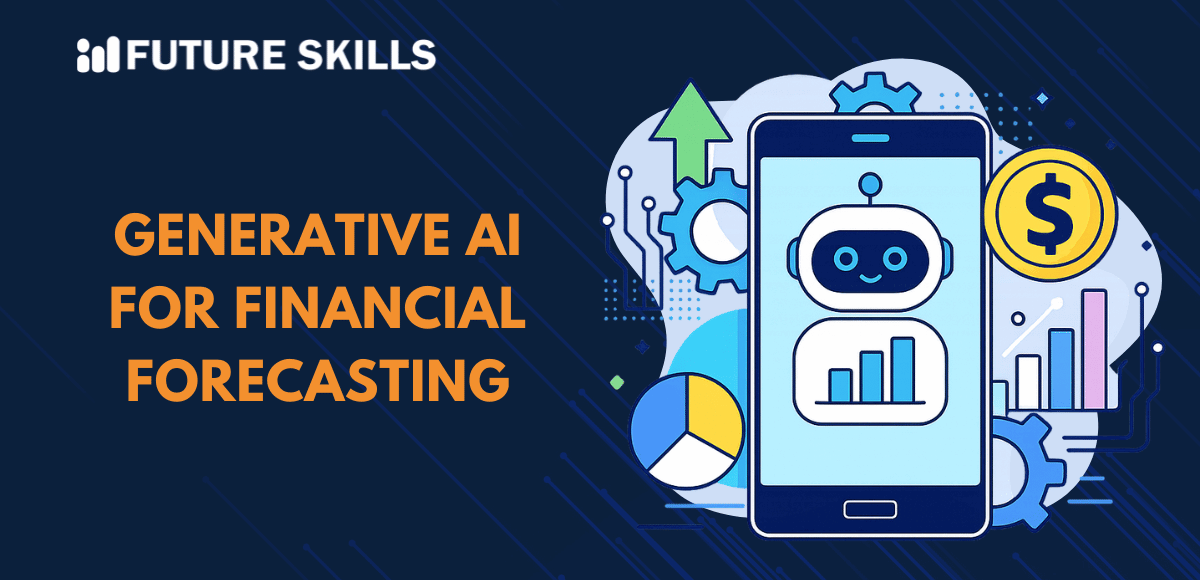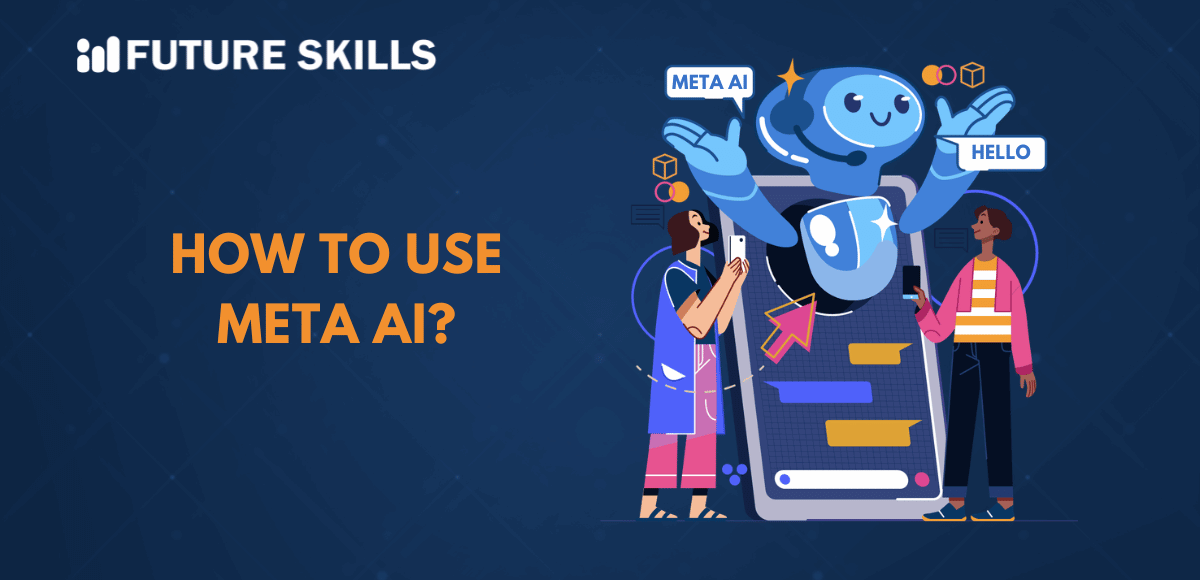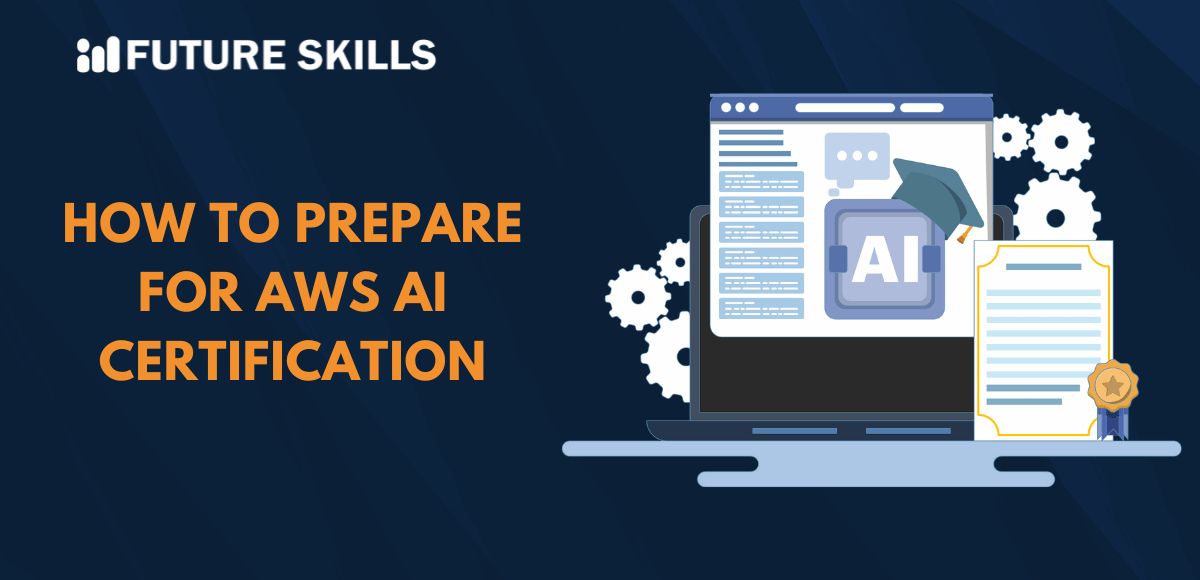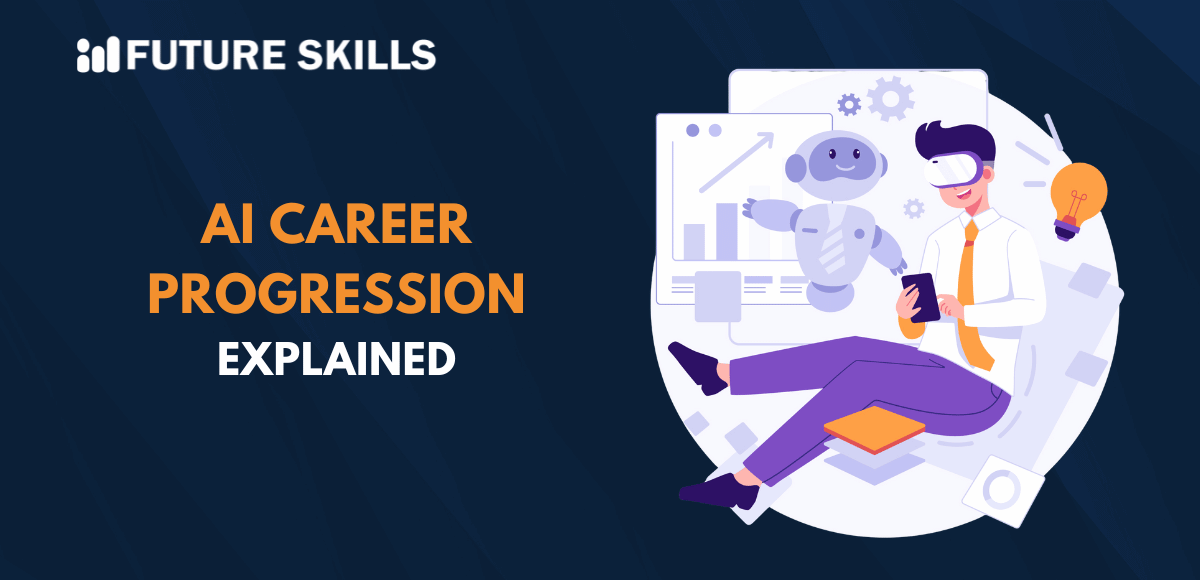The hype for artificial intelligence has been settling down and you could still find innovative wonders in various AI applications. Do you know which industry is at the forefront of transformation with the power of AI? The use cases of generative AI for financial forecasting have revealed that you can achieve better efficiency with AI than conventional measures. For instance, financial forecasting used to be the domain of seasoned analysts who used complex statistical models and their intuition to draw predictions. Generative AI can do the same task with minimal efforts and accurate results. Let us find out whether generative AI or gen AI is the next big thing for financial analysis and forecasting.
Level up your AI skills and embark on a journey to build a successful career in AI with our Certified AI Professional (CAIP)™ program.
Why is Generative AI Creating Buzz in Financial Forecasting?
You may have heard many things about the capabilities of AI to drive transformation in different industries. At the same time, you must know how to differentiate hype from reality while adopting AI in industries like finance. The involvement of sensitive financial information and personal data in AI financial forecasting requires users to understand why they should adopt generative AI in financial analysis and planning. One of the common answers for such concerns points at the limitations noticed in traditional financial forecasting.
Traditional financial forecasting had to rely on pre-defined deterministic models along with historical data. On top of it, traditional financial forecasting had to face problems like non-linear relationships and extreme unprecedented events. Most important of all, traditional approaches to financial forecasting could not accommodate the massive sets of unstructured data which influenced markets. Generative AI addresses all these limitations and serves as a better alternative to the traditional methods for financial planning and analysis.
How is Generative AI Better at Financial Forecasting?
When you think about the uses of generative AI for financial forecasting, you may assume that generative AI will only offer the advantage of automation. You can find answers to “How can generative AI be used in finance?” by reviewing the different capabilities of gen AI. The following capabilities of generative AI make it the ideal choice for revolutionizing financial planning and analysis.
-
Discovering the Hidden Patterns
One of the biggest strengths of generative AI is the ability to recognize hidden patterns in unstructured data. You must know that the financial services industry does not run only on numbers. On the contrary, the world of finance also encompasses news, regulatory changes, social media sentiment, and geopolitical events. Since all of these come under the category of unstructured data, traditional financial forecasting methods cannot use them to draw predictions.
Generative AI can use LLMs and natural language processing to process large collections of news articles, social media feeds, and analyst reports. As a result, it can recognize the subtle changes in sentiment and early signs of market volatility. Generative AI can also help in summarizing complex financial narratives that transforms qualitative data into actionable insights.
-
Hyper-Personalization in Financial Planning
The advantages of generative AI for finance will also focus on hyper-personalization. Generative AI can create personalized investment strategies analyzing individual financial profiles, risk appetites, and spending habits. Apart from investment strategies, generative AI can help in creating custom financial products and personalized budget plans.
The foremost benefit of using generative AI in financial planning and analysis is the assurance of personalized predictions. You can rely on generative AI to obtain personalized financial guidance with a new perspective on financial planning. Generative AI brings sophisticated financial forecasting capabilities to you without the burden of humongous costs.
-
Opportunity to See the Unseen
Traditional financial forecasting models relied heavily on past trends and data. On the contrary, generative AI models can generate complete new and relevant financial data. The unique capability of generative AI models helps in simulation of unprecedented market conditions which have never occurred in the past.
With the help of generative AI, you can visualize how the market would look like in the event of a collapse or a sudden growth spike. Generative AI tools provide lot of opportunities for scenario planning and stress testing. For instance, you can use generative AI tools to simulate thousands of potential economic downfall scenarios for measuring a portfolio’s performance.
-
Automated Forecasting
The most prominent use case of generative AI for financial analysis and planning is automated forecasting. While AI financial modeling can move one step ahead of the traditional models, generative AI can streamline report generation. It is important to remember that the traditional processes for collecting data, analyzing relevant data points, and creating reports are labor-intensive.
You can leverage generative AI to automatically generate reports on the financial health of a company that feature complete predictions. The reports will also include in-depth risk assessment along with market comparisons. Generative AI models can generate such reports by feeding raw financial statements, social media feed, and news. Human analysts will find more time for high-level strategic thinking rather than investing time in repetitive data processing.
Level up your ChatGPT skills and kickstart your journey towards superhuman capabilities with Free ChatGPT and AI Fundamental Course.
How is Generative AI Applied for Financial Forecasting in the Real World?
Generative AI showcases multiple features which prove that it has everything required to revolutionize finance. You might also want to learn about the different ways in which financial institutions have been using generative AI for forecasting. The following real-world applications of generative AI in financial planning prove its potential for changing how we view and use financial services.
-
Synthetic Data
Financial institutions have discovered the biggest application of generative AI for financial forecasting in creation of synthetic financial data. The companies use Generative Adversarial Networks or GANs to come up with synthetic data that can enhance real-world data. It is a useful intervention to train models for fraud detection, risk management, and market simulations. As a result, generative AI models for financial planning and analysis will become more robust without revealing sensitive data.
-
Personalized Customer Interactions
Financial institutions leverage generative AI models for seamless financial forecasting while also offering the benefit of personalization. Generative AI can help in powering chatbots and virtual assistants that could provide instant responses to customer queries about financial predictions. On top of it, generative AI also provides the assurance of tailored explanations for complex financial products and enhanced customer experience.
-
Market Sentiment Analysis
The use cases of generative AI for finance will also provide the advantage of market sentiment analysis in financial forecasting. Financial institutions can leverage advanced NLP models for analyzing public sentiment from social media feeds and news to obtain real-time insights. As a result, users can make more strategically informed decisions that improve the chances of achieving desired results.
Want to gain practical skills in using OpenAI API and implementing API calls to facilitate LLM interactions, Enroll now in the Certified Prompt Engineering Expert (CPEE)™ Certification.
Future of Generative AI for Financial Planning and Analysis
Financial forecasting might be a cakewalk for generative AI models with their impressive capabilities. Many of you might be thinking about the potential direction in which generative AI is headed in the domain of finance. The future of generative AI in the field of financial forecasting will not introduce sudden changes. On the contrary, AI financial forecasting will embrace innovative advancements to become better with time.
-
Explainable AI
Explainable AI systems will provide various reasons to encourage widespread adoption of AI in finance. With explainable AI, you will find easier ways to understand the decision-making processes of AI models used for financial forecasting.
-
Hybrid Models
Hybrid models will also emerge as formidable additions to the uses of generative AI to create financial forecasts. The most interesting highlight of hybrid models is the combination of generative AI with traditional deterministic models to create reliable forecasting solutions. While generative AI creates multiple scenarios, traditional models could evaluate the implications of each scenario.
-
AI Governance Frameworks
Another notable highlight that you can expect in the future of AI financial modeling is robust governance frameworks. AI governance frameworks will become a necessity to combat issues of bias and ethics. The utility of AI governance frameworks will help in continuous monitoring of AI models to hold them accountable for violations.
-
Human-in-the-Loop Systems
The most prominent trend expected in the future of generative AI models for finance is the arrival of human-in-the-loop systems. AI forecasting systems will use human oversight and verification at critical stages to ensure that they present relevant insights. Human-in-the-loop systems can enhance the credibility of financial forecasts by integrating the human element for identifying errors and addressing biases.
-
Specialized AI Models
As the use cases of generative AI in the domain of financial forecasting continue gaining recognition, specialized models will have a huge impact in future. How? Financial services companies will not rely on general-purpose generative AI models for financial forecasting. On the contrary, they will turn to fine-tuned specialized models that use domain-specific financial data curated by experts. As a result, generative AI models will have better accuracy in financial forecasts while reducing the possibility of hallucinations.
Excited to understand the crucial requirements for developing responsible AI and the implications of privacy and security in AI, Enroll now in the Ethics of Artificial Intelligence (AI) Course
Final Thoughts
The uses of generative AI for financial forecasting can offer significant advantages to financial services companies. Generative AI can transform financial forecasting by introducing advanced capabilities for understanding market dynamics, simulating black swan events and improving speed of forecasts. While generative AI has to face some tough challenges in financial modeling, the future of generative AI in the financial services sector seems bright. Learn more about the potential ways to embrace generative AI tools in the domain of financial forecasting right now.






